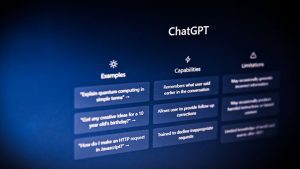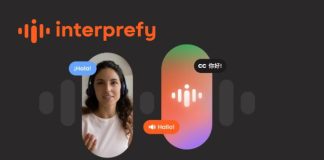
The end of Google as we know it?
Are the last hours of Google really numbered? Numerous experts think so. Google’s services seem no longer sufficient to satisfy users’ information needs.
Microsoft recently unveiled a new version of its search engine Bing. It has an even more powerful and Internet search-tailored variant of ChatGPT. The language model’s separate answers and interactive chat functions will exist in search queries next to conventional results. The new search engine is already available, but only as a limited preview. Initially, the new search engine will only be used on personal computers, but a version for mobile devices is said to be in preparation.
Although Google runs two of the world’s leading AI research groups, it is ChatGPT, a programme quickly developed by a startup that Google perceives as a threat. According to The Information, OpenAI was able to launch ChatGPT so rapidly because the company hired former Google researchers, of all people, to optimise it. And yet more Google employees are switching to OpenAI.
According to reports, the emergence of ChatGPT did more than shake Google out of its slumber. Tech giant Baidu, China’s largest search engine and one of the world’s most visited websites, has also recognised the potential threat posed by the new competitor. It is the first Chinese company to take action. Baidu plans to push artificial intelligence further, with its own software and a ChatGPT competitor to be released soon. The development of new variants is intensifying the battle between the US and China for global AI supremacy. (Source: Table.Media).
The emergence of Aleph Alpha
While the tech giants are fighting for supremacy, a smaller German competitor, Aleph Alpha, is emerging. The startup has developed a chatbot called Lumi. Aleph Alpha’s small size means independence from big tech and a tailored and optimised service for a specific set of customers like banks and universities rather than the masses. The company values the accuracy and sources of its information. (Source: Sifted).
As a result, experts are predicting that AI catch-up will no longer be enough to prevent Google from suffering a crushing defeat. Faced with innovative competition, Google is under time pressure in its attempt to outdo ChatGPT. Although the company has announced new products, no release date has yet been announced, as the company wants to ensure that the technology is helpful and safe before launching it.
The search engine giant strikes back
Not to be outdone, Google is preparing a counter-attack and is reacting to the new competitor in two ways. According to a report by the Financial Times (subscription required), Google has invested $300 million in OpenAI competitor, Anthropic, taking a 10% stake. It gives Google access to Anthropic’s recently launched AI chatbot, Claude. The generative AI model is similar to ChatGPT and has even shown improvements that make it capable of competing.
In addition, Google is currently testing its proprietary new ChatGPT competitor “Bard” in preparation for its launch. The software is supposed to work with the AI system LaMDA (Language Model for Dialogue Applications), which Google has been developing for some time.
According to CNBC, CEO Sundar Pichai instructed his employees in an internal memo to test his AI chatbot. Google also plans to recruit more developers and companies for this purpose. With time running against Google, generative AI is the top priority at the moment.
The company also plans to launch 20 new products this year.
Google’s future lies in its strengths – if Google manages to make use of them
Even though many expect the end of Google, some AI experts believe that ChatGPT will not replace Google Search any time soon. The key will be for the company to play to its strengths and avoid the known weaknesses of ChatGPT. Google’s assets lie in its desire to consider the broader societal impact of technology and its focus on security, the fight against misinformation and ensuring information is factually correct.
This benefit will also be utilised within Bard. Its main advantage is its timeliness and the fact that it draws on information from the Internet to provide up-to-date and high-quality answers rather than relying on outdated data. This attitude of Google shows why the company is considered the most trusted search engine in the world.
But, its hesitant behaviour is now breaking Google’s neck. Its eternal competitor Microsoft is now overtaking it by quickly integrating ChatGPT. The fact that numerous former Google researchers are now also making their years of knowledge available for OpenAI makes the consequences of this hesitation even more devastating.
It doesn’t help that Google still plays in a different league and, according to the market research group Statcounter, its market share of internet searches worldwide was recently 93 per cent. Google rightly has enormous influence in this area but will lose that quickly if it does not play to its strengths and continues to hesitate in this way. Otherwise, it has been synonymous with online search for the longest time.
Muzungu Capital is a venture capital and private equity firm founded by Ronald Paul. The company focuses on hands-on support for innovative start-ups in the Fintech and PropTech sectors, guiding them from the early investment stage to a successful exit. In addition to financial support and valuable resources, Muzungu Capital’s team members provide founders with their extensive business insight.
Muzungu pursues a “founders for founders” approach and is well aware of the unique challenges and opportunities that arise during the various stages of a company’s growth.
Through its global network, Muzungu Capital is a door opener on a national and international level.

























